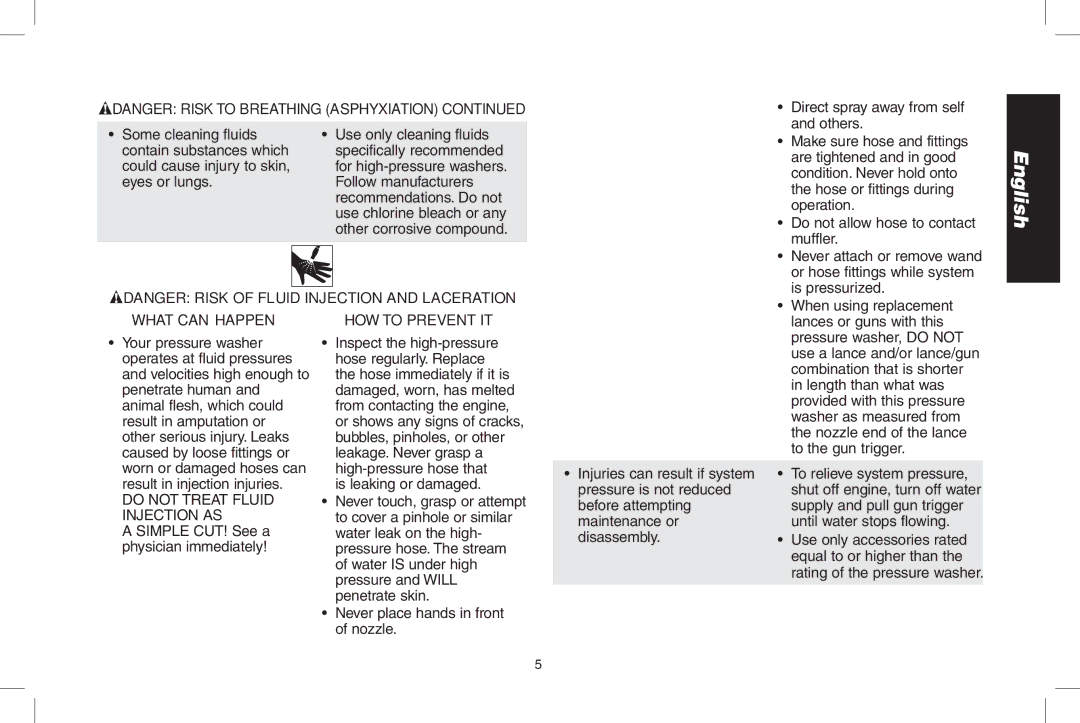
![]() DANGER: RISK TO BREATHING (Asphyxiation) continued
DANGER: RISK TO BREATHING (Asphyxiation) continued
• Some cleaning fluids | • Use only cleaning fluids | |
contain substances which |
| specifically recommended |
could cause injury to skin, |
| for |
eyes or lungs. |
| Follow manufacturers |
|
| recommendations. Do not |
|
| use chlorine bleach or any |
|
| other corrosive compound. |
|
|
|
|
|
|
![]() DANGER: RISK of FLUID INJECTION and Laceration
DANGER: RISK of FLUID INJECTION and Laceration
• | Direct spray away from self |
| and others. |
• | Make sure hose and fittings |
| are tightened and in good |
| condition. Never hold onto |
| the hose or fittings during |
| operation. |
• | Do not allow hose to contact |
| muffler. |
• | Never attach or remove wand |
| or hose fittings while system |
| is pressurized. |
• When using replacement | |
English
What can happen
•Your pressure washer operates at fluid pressures and velocities high enough to penetrate human and animal flesh, which could result in amputation or other serious injury. Leaks caused by loose fittings or worn or damaged hoses can result in injection injuries.
DO NOT TREAT FLUID INJECTION AS
A SIMPLE CUT! See a physician immediately!
How to prevent it
•Inspect the
is leaking or damaged.
•Never touch, grasp or attempt to cover a pinhole or similar water leak on the high- pressure hose. The stream of water IS under high pressure and WILL penetrate skin.
•Never place hands in front of nozzle.
•Injuries can result if system pressure is not reduced before attempting maintenance or disassembly.
| lances or guns with this |
| pressure washer, do not |
| use a lance and/or lance/gun |
| combination that is shorter |
| in length than what was |
| provided with this pressure |
| washer as measured from |
| the nozzle end of the lance |
| to the gun trigger. |
• | To relieve system pressure, |
| shut off engine, turn off water |
| supply and pull gun trigger |
| until water stops flowing. |
• | Use only accessories rated |
| equal to or higher than the |
| rating of the pressure washer. |
5
